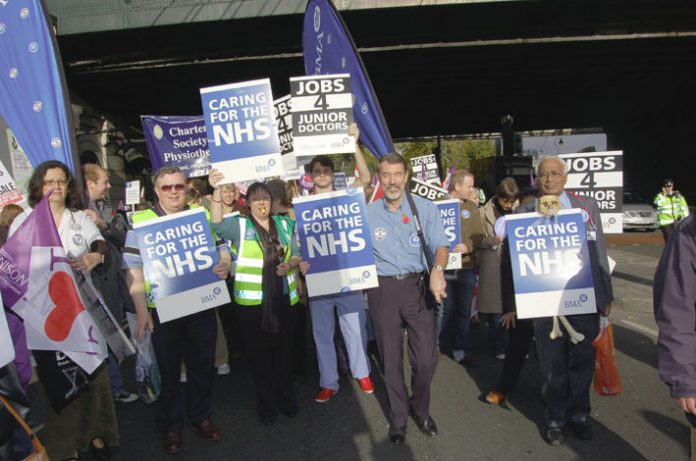Government plans to introduce a new type of GP practice involving the commercial sector could leave patients in deprived areas with a second class service, warns the British Medical Association (BMA) GP’s Committee.
In a letter to health minister Lord Darzi, published yesterday, GPs Committee (GPC) chairman Dr Laurence Buckman said: ‘We believe that patients registering with practices run by private organisations holding APMS contracts (Alternative Providers of Medical Services) would be at a distinct disadvantage compared to those registered with a ‘traditional’ general practice, exacerbating rather than alleviating health inequalities.’
Darzi’s interim report on the NHS in England states there will be 100 new practices and 150 health centres in under-doctored areas, a move welcomed by the BMA.
Although the interim report says the new practices can be either traditional general practices or new private providers (under APMS contracts) the GPC letter stated: ‘It is clear that in fact PCTs (Primary Care Trusts) will only be able to use APMS.’
The BMA said that this is because the Department of Health is telling PCTs to do so.
The letter warns that private organisations holding APMS contracts employ a salaried or locum staffing model akin to that of practices run directly by PCTs where the turnover of employed doctors is often high, running costs are higher than traditional models of general practice and quality scores are lower.
Dr Buckman’s letter criticised the government for ‘wasting time and energy on stimulating markets within the NHS and developing new practices rather than supporting existing ones.
‘We would like to see a strategy in place that focuses on ensuring sufficient capacity in general practice based on the clinical needs of the growing population,’ Buckman adds.
The GPC remains committed to seeing general practice develop along the independent contractor model based on a registered list of patients, offering continuity of care, a personal doctor and advocate, and value for money.
At the very least there should be the option of using traditional GP models for the new practices and health centres.
Dr Buckman said: ‘The commitment to invest solely in “new” primary care services rather than improving existing services and/or infrastructure we believe is short-sighted and will not provide value for money.’
Some of the new money for access should go towards GP premises development, allowing existing practices to expand and offer more patient services.
This could deliver significant improvements in access to primary care sooner than the alternative APMS route.
Dr Buckman added that ‘it is hard to see the distinction’ between the privately-run polyclinics proposed by Darzi for London and the health centres proposed for the rest of England.
He stressed: ‘We remain very concerned that these practices may end up delivering a potentially second class service to areas of the country that already have significant health inequalities’, arguing that traditional general practices are the best option for all patients.
